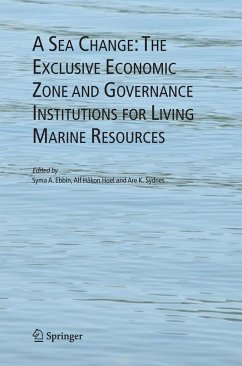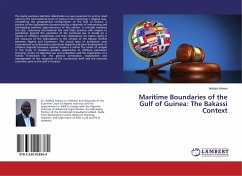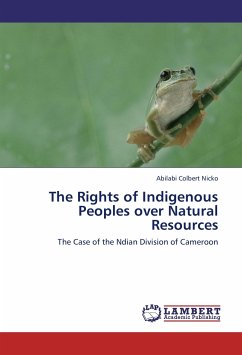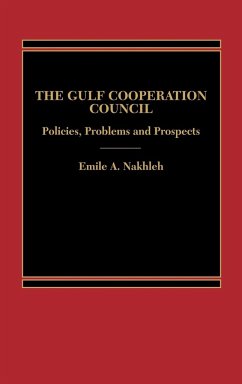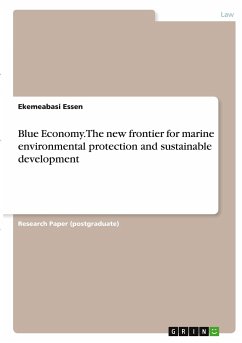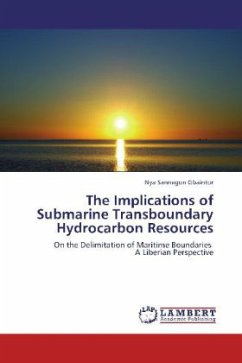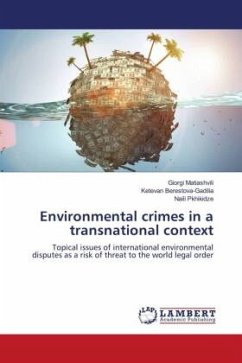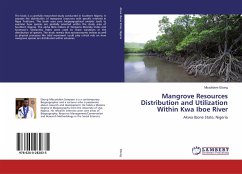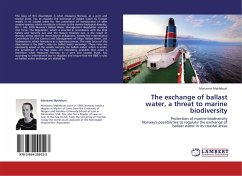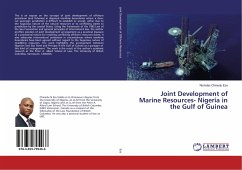
Joint Development of Marine Resources- Nigeria in the Gulf of Guinea
Versandkostenfrei!
Versandfertig in 6-10 Tagen
55,99 €
inkl. MwSt.

PAYBACK Punkte
28 °P sammeln!
This is an expose on the concept of joint development of offshore petroleum (and fisheries) in disputed maritime boundaries where a clear-cut sovereign jurisdiction is difficult to establish or accept, either due to the fugacious nature of the natural resources or to conflicting claims to jurisdiction by the coastal States. Using the framework of the 1982 Law of the Sea Convention and general principles of international law, the author proffers solution of joint development arrangement as a practical measure of a provisional nature for resolving conflicting offshore resources claims. It also a...
This is an expose on the concept of joint development of offshore petroleum (and fisheries) in disputed maritime boundaries where a clear-cut sovereign jurisdiction is difficult to establish or accept, either due to the fugacious nature of the natural resources or to conflicting claims to jurisdiction by the coastal States. Using the framework of the 1982 Law of the Sea Convention and general principles of international law, the author proffers solution of joint development arrangement as a practical measure of a provisional nature for resolving conflicting offshore resources claims. It also advocates international unitisation in circumstances where maritime boundaries have been agreed without regard to the fugacious nature of straddling resources. The work highlights the arrangement between Nigerian and São Tomé and Príncipe in the Gulf of Guinea as a paragon of this kind of arrangement. The work is the result of the author's academic research at the Peter A. Allard School of Law, The University of British Columbia, Vancouver, CANADA.



